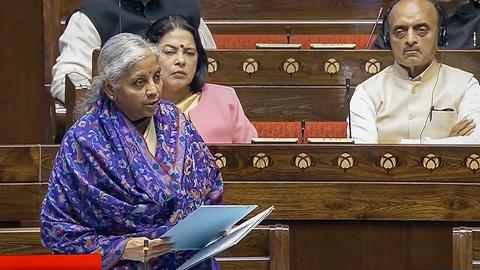Understanding White Papers: A Brief Overview
White Papers play a vital role in policymaking, providing a foundation for discussion, informing decision-makers, and guiding future actions.
In an era where information is both a tool and a weapon, the concept of a white paper has emerged as a beacon of clarity, particularly in the complex world of governance. On February 8, Finance Minister Nirmala Sitharaman presented a pivotal white paper on the Indian economy in Parliament, spotlighting the financial narrative that has unfolded over the past two decades. This document, meticulously prepared by the Ministry of Finance, embarks on a comparative journey, evaluating the 10-year economic stewardship of the Congress-led United Progressive Alliance (UPA) governments from 2004-05 to 2013-14 against the subsequent decade under the Bharatiya Janata Party (BJP)-led National Democratic Alliance (NDA) governments from 2014-15 to 2023-24.
beacon of clarity, particularly in the complex world of governance. On February 8, Finance Minister Nirmala Sitharaman presented a pivotal white paper on the Indian economy in Parliament, spotlighting the financial narrative that has unfolded over the past two decades. This document, meticulously prepared by the Ministry of Finance, embarks on a comparative journey, evaluating the 10-year economic stewardship of the Congress-led United Progressive Alliance (UPA) governments from 2004-05 to 2013-14 against the subsequent decade under the Bharatiya Janata Party (BJP)-led National Democratic Alliance (NDA) governments from 2014-15 to 2023-24.
Historical Context: The Origin of White Papers
Amidst this backdrop, it is imperative to demystify what a “white paper” entails. Originating from the British government, the term was coined to distinguish these policy documents from other forms of government publications, such as green papers (more exploratory documents inviting discussion) or blue books (detailed reports or collections of statistics). The historical roots of white papers trace back to 1922 with the Churchill White Paper, also known as the “British Policy in Palestine,” introduced by Winston Churchill. This document set a precedent for governments worldwide to use white papers as a strategic tool for articulating positions, addressing public concerns, and enhancing transparency.
A white paper in the parliamentary context serves as a comprehensive report or guide informing stakeholders about complex issues and offering insight into government policies or proposed legislation. These documents play a vital role in policymaking, providing a foundation for discussion, informing decision-makers, and guiding future actions. They are instrumental for legislators, policymakers, researchers, and the public, offering a platform for understanding and debating significant issues or developing new policies.
The essence of white papers extends beyond merely informing. They are designed to dissect intricate topics into digestible segments, allowing stakeholders to comprehend the nuances of an issue and formulate their strategies. While suggestive in nature, white papers invite opinions, discussions, and feedback, facilitating a more inclusive approach to policy formulation and legislative changes.
The flexibility in the issuance of white papers by governments underscores the adaptability of this tool. Without stringent guidelines or timelines, governments can issue white papers on pertinent topics at any time, reflecting the dynamic nature of governance and policy development. This flexibility also extends to the opposition, which can demand white papers on contentious issues, adding a layer of accountability and transparency to the governance process.
Illustrative of their significant impact, white papers have been instrumental in addressing and discussing various national concerns. Notably, a White Paper on the ‘Punjab Agitation’ was laid and debated in Parliament in July 1984, and a ‘White Paper on Black Money’ was presented in 2012, reflecting the government’s stance on critical issues and inviting public discourse.
The presentation of the white paper on the Indian economy by Finance Minister Nirmala Sitharaman serves as a contemporary example of this tradition, offering a transparent analysis of economic governance over the past two decades. By comparing the economic records of the UPA and NDA governments, this document provides a basis for assessing policy effectiveness. It encourages a constructive dialogue on the future trajectory of the Indian economy.
In conclusion, white papers embody the spirit of transparent governance. They empower governments to articulate policies, address public concerns, and foster a culture of trust. As dynamic tools for communication, white papers significantly influence public discourse, enhance accountability, and promote informed decision-making. In the realms of governance, business, and academia, they remain indispensable for clarifying complex issues, shaping policy debates, and guiding societal progress. Through the lens of the recent white paper on the Indian economy, the role of these documents in fostering an informed and engaged citizenry is unmistakably reinforced, underpinning their enduring value in the tapestry of democratic governance.
